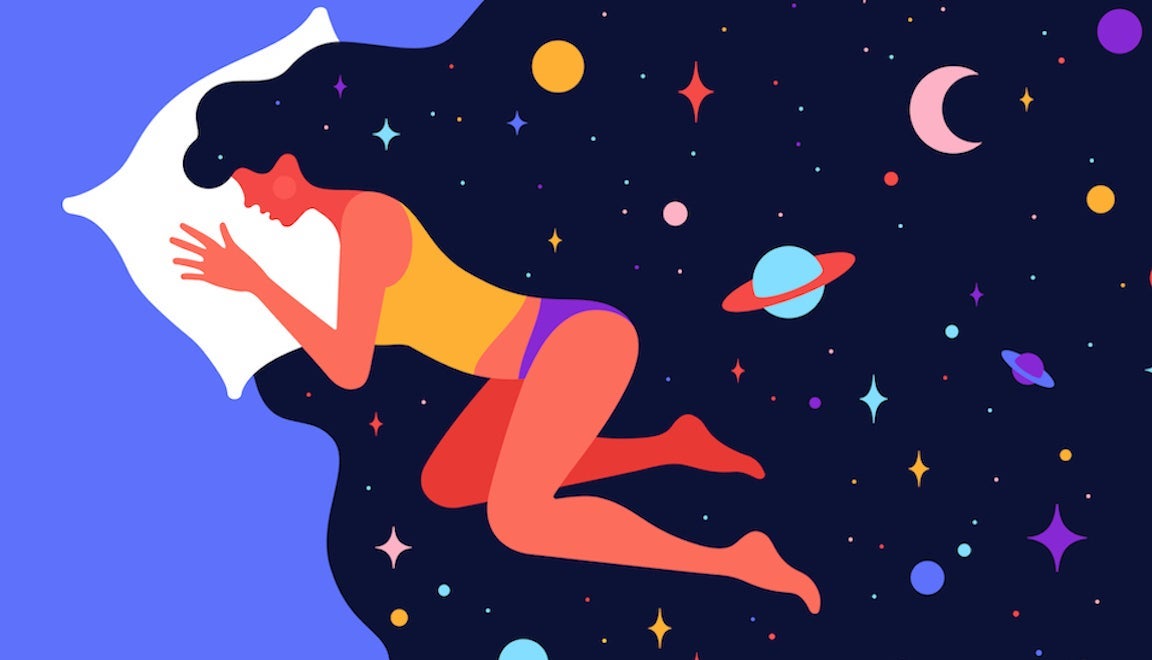Imagine that there was a new supplement on the market that could accelerate tissue repair, boost human growth hormone to build bone and muscle, enhance metabolism, sharpen concentration, and tweak your perception to make hard exercise efforts feel easier. You would likely at least be a bit curious, if not telling a supplier to take your money already.
The mysterious coma that we slip into each night called sleep does all of that and more, and all it takes is the eight hours a night that the WHO recommends. But, despite its long list of miraculous benefits, as a culture we’ve taken on a peculiarly apathetic attitude toward sleep. In fact, the World Health Organization has declared a sleep loss epidemic across industrialized nations.
For some it’s easier said than done, but if you’re serious about running (and feeling) your best, it’s imperative that you prioritize getting a good night’s sleep as if it were written into your training plan.
Repair Tissue and Build Muscle
If you’re logging a lot of miles, you’re depleting your energy and fluid stores and breaking down muscle tissue. We all know that hydration and proper fueling are necessary parts of recovery after training, but sleep is one of the most important, yet overlooked, components of the recovery process. Particularly during tapering before a big race.
“During the deeper stages of sleep, HGH (Human Growth Hormone) is released,” explains Dr. Shelby Harris, a marathoner and author of The Women’s Guide to Overcoming Insomnia: Get a Good Night’s Sleep Without Relying on Medication (Norton books, 2019). “HGH is a hormone produced by the pituitary gland and released into the bloodstream. HGH aids in repairing muscle, strengthening bones, and converting fat to fuel. Less sleep leads to lower HGH levels, impacting the speed from which athletes recover from workouts.”
Through this process, sleep replenishes, repairs, and regenerates tissue damaged from the day’s workout and builds muscle and bone so that you can be ready for the next day’s effort. Moreover, if you’re doing particularly hard efforts, your body may secrete greater quantities of HGH while you sleep if you need it. Additionally, HGH helps convert fat into fuel. Without an adequate amount of sleep, your body has a hard time properly recovering from workouts and efficiently utilizing energy.
Athletic Performance
Consequently, a sleep deficit means that your athletic performance will almost certainly take a hit. In 2011, a group of researchers from Stanford published a study in the journal SLEEP detailing their findings on how sleep can improve athletic performance. The study had Stanford University basketball players maintain their typical sleep schedule for up to four weeks. They were then asked to sleep 10 hours every night for five to seven weeks. The researchers found that the participants’ speed substantially improved, going from 16.2 seconds to 15.5 seconds for 282-feet sprints. Additionally, the players’ shooting accuracy improved, and they said that they felt their practice improved after six weeks of tacking on extra hours of sleep at night.
While the study was performed on basketball players, not runners, it does suggest that sleep is imperative for top-notch performance and that reducing an accumulated sleep debt can benefit any athlete.
Perception of Effort

A well-noted side effect of sleep deficit and endurance activities has been that athletes have a higher perception of effort for a given degree of exercise excretion. For example, a 2014 study looked at the effect of sleep deprivation in a group of healthy participants. They found that participants who were required to stay awake for 24 hours in a lab underestimated their capabilities to perform physical tasks (such as stepping over a bar) as compared to the control group. Another study published earlier this year found that sleep deprivation in 10 healthy, active men resulted in increased perceived fatigue and perception of effort, lower free-living energy expenditure, lower blood glucose, and reduced maximal exercise performance.
Simply put, not getting enough sleep will make physically tasking actions like running (and everything else) feel much harder than they actually are.
Hormonal Balance
According to Harris, sleep deprivation also disrupts our appetite signaling hormones.
“When we sleep less, we have an increase in ghrelin, the hormone that makes us hungry, and a decrease in leptin, which tells us we’re full,” says Harris. “As a result, we eat more because we don’t have a strong signal to stop. Good sleep helps to keep these hunger signals in check, leading to an easier time sticking with a diet.” Furthermore, the accumulation of a sleep debt has been linked to decreased production of glycogen and carbohydrates that are stored for energy use during physically strenuous activities, like running. In other words, less sleep throws off your body’s ability to know how to fuel itself and effectively use that fuel.
There is research to suggest that sleep deprivation can increase levels of the stress hormone cortisol. High levels of cortisol are correlated with slower recovery times and other unpleasant side-effects such as fatigue, poor focus, weight gain, and insomnia—creating a cycle of sleeplessness.
How to Get Better Sleep

Most individual’s baseline needs are 7-9 hours of sleep seven days a week. If you’re especially tired, tack on an additional 30-60 minutes per night. While a 20-30 minute recovery nap early in the day can be helpful, make sure you do it before 2 p.m. so that it doesn’t rob any time away from your nighttime sleep.
Despite the seemingly cure-all benefits of a good night’s sleep, most studies have found that athletes fail to obtain the recommended amount of sleep. And, unfortunately, runners can be prone to insomnia particularly during vigorous training cycles when they need sleep the most.
Here are seven recommendations on getting a better night’s rest.
- Keep a consistent bed and wake time, even on weekends. This may not always be easy, but do your best to get on and stick to a sleep schedule. Being consistent reinforces your body’s sleep-wake cycle.
- Turn off your electronics. Creating too much stimulation before bed can stir up your mind and lead to insomnia. It’s hard not to do the final check on our phones before turning in for the night, but try to turn off your electronic devices a few hours before bed. Emails and texts can wait until the next day.
- Avoid exercise within three hours of bed as that can worsen sleep onset. “If you have to choose between an easy routine run and getting a good night’s sleep, choose sleep more than the run,” says Harris. “You’ll get more long-term benefit.”
- Avoid heavy meals, liquid, alcohol, and caffeine within 3 hours of bed. You don’t want the discomfort of a big meal to keep you up. And you definitely don’t want to drink caffeine too late in the day. Its stimulating effects can take hours to wear off and can ruin your quality sleep. And even though a glass or two of wine might make you feel sleepy, it can disrupt sleep later in the night.
- Keep your bedroom quiet, dark, and cool. Most sleep experts believe that the idea sleep temperature is somewhere between 60 and 67 degrees Fahrenheit. According to a National Sleep Foundation poll, 73% of Americans say the darker the room the better. Consider using heavy shades, curtains, or blinds to block unwanted light.
- Declutter your bedroom. Love it or not, mess is not dreamy. A 2015 study suggested that those surrounded by clutter are more likely to have a sleep disorder.
- Fuel for sleep. Like training, quality sleeping requires proper fueling. Try drinking tart cherry juice, which has been shown to boost levels of melatonin, or kava tea to mellow you out before going to bed.


